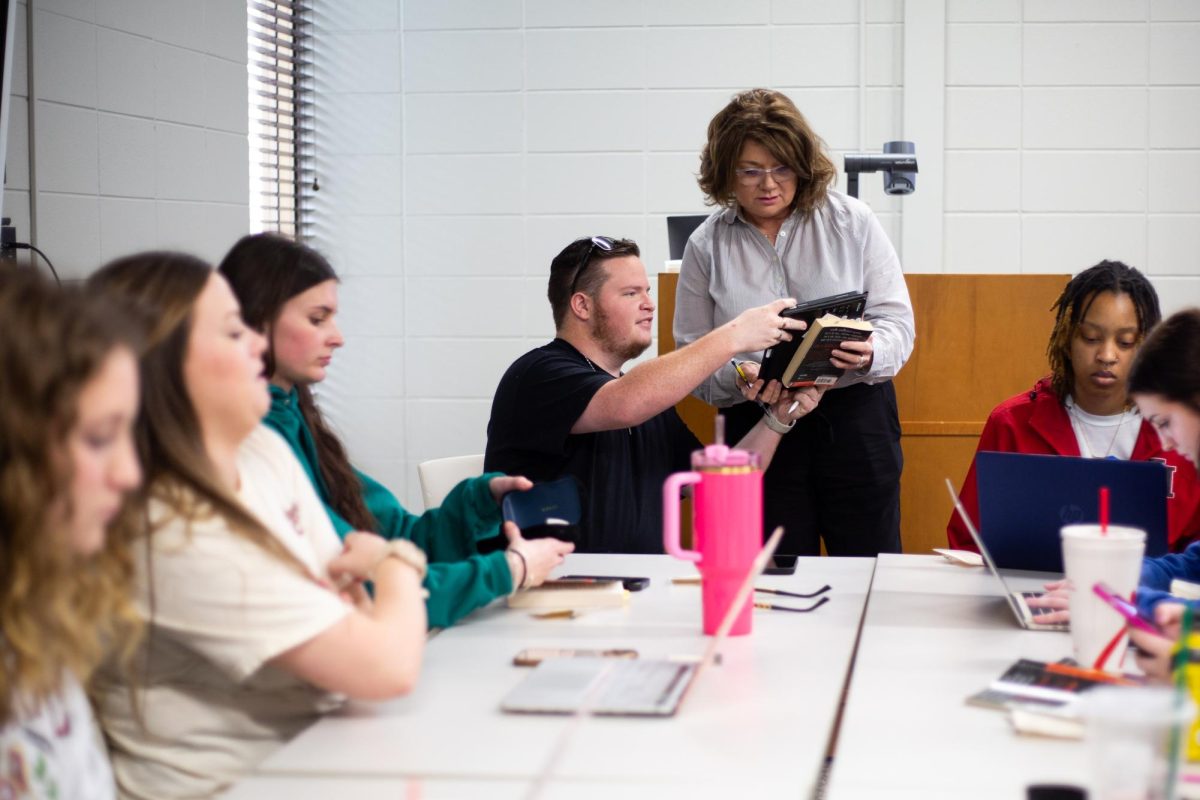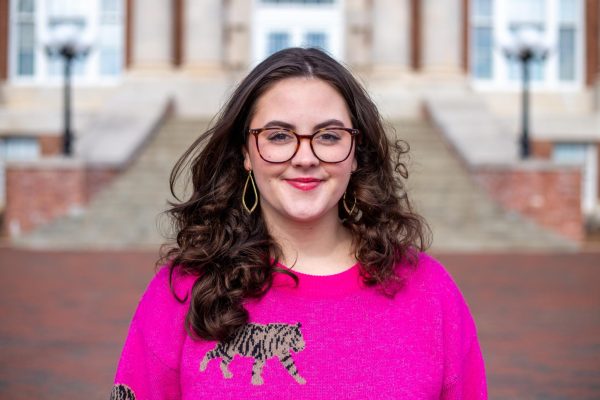If I had to recount the most memorable moments in my life, the times where I experienced something that I could never forget, every single moment would be tied to the arts in some shape, form or fashion.
The arts have had an incredible impact throughout my life, whether I recognized it at the time or not. It is my only hope that I can watch and help others have a similar experience.
As a future teacher, I am constantly looking for activities and methods that will help me engage my future students, teach them to empathize with one another and understand situations far different than their own. For me, the arts are the perfect catalyst for this.
Elaine Bunn, a secondary education instructor at Mississippi State University spoke on the versatility of art and what it provides for students.
“It enables students to learn in different ways and helps them discover their own talents. Maybe a student who doesn’t write as well can represent their thoughts in art. Art considers all student needs; it opens avenues for students to discover their skill sets; and it’s a different way for them to learn and assess information,” Bunn said.
Bunn continued on. “Art allows us to showcase our talents and be affected by the arts that are produced. The arts are all around us, and it’s really about the way we react to it. There’s just something about that creation — art starts with creation,” Bunn said.

As teachers, or future teachers, part of our job includes teaching students how to interact with and respond to people, places and events. Art allows students to express themselves whether that be through painting, drawing, sculpture, dance, theater, etc.
I do not know that we could ever completely eradicate the arts. If, as Bunn says, we assume that the arts start with creation, then they can be found in almost everything. Cultivating a garden and writing a story are art just as much as a painting or a theatrical production.
I do fear that our intentional engagement in the arts is dwindling. Art galleries are closing their doors due to a lack of patrons, theatrical groups are performing for half-filled auditoriums and many schools only teach what will show up on a state test.
What will happen if this continues, and we no longer push our students to participate in the arts or teach them to appreciate it? A love for art that is fostered in the classroom has the potential to grow beyond the classroom.
Donna Clevinger, a Senior Faculty Fellow in the Shackouls Honors College, has spent years participating in, watching and teaching the arts. She revealed how her mission has been to encourage students to step outside of their comfort zones and experience the arts as it might very well change their perspective.
“The arts make us stronger in lots of different respects; you share traditions, culture, philosophies, beliefs and values; it gives us purpose; it gives us hope. It is a communal arena where we all become one and share in the same experience like nothing else gives. We become instant friends. We become individuals that see beyond our own talents,” Clevinger said.
Unlike other avenues, the arts let us enter another person’s life. We get to see what that person feels, thinks, sees and hears. We get to experience a million lifetimes in one, allowing us to understand people and situations we might never have been able to before.
Orphan Train, a fictional story about an orphan who is sent away on a train to live with strangers, usually for labor, might be more impactful than reading about the orphan trains in a history textbook. A live production of A Raisin in the Sun might communicate the hardships of African-Americans in the 1950s better than a journal entry during the same time period.
These artistic accounts are more personal. They take us into their world where we can see for ourselves the things other people encounter.
Art is the closest thing to a first-hand experience we can get without directly experiencing it ourselves.
Clevinger further explained what makes the arts personal.
“The arts make it personal. If you dare to reach out and to focus on what is in front of you, you can feel those emotions and find a connection. Whether you like it or not, you’ve got a reaction. Go to a museum, listen to a symphony orchestra, watch that play, take all of the opportunities we have at Mississippi State and experience,” Clevinger said. “You can miss out on finding a part of yourself, who you are, if you don’t. You have to get off that planned trail of yours and go a different direction.”
Clevinger revealed how her path to the arts was not one that she originally anticipated.
“I walked my suitemate to her audition, and I walked away with the part. I closed my STEM textbook and never looked back. But I got off my planned path, would I have found it anyways? Maybe. But who knows,” Clevinger said.
That is perhaps one of the best things about art. You never know how you are going to react or how your perceptions might change, and all you have to do is attend one event, go to one art gallery or listen to one song.
In a society where the world’s issues desensitize us to war, violence and grief, the arts are needed now more than ever.
We must find ways to teach our students to care when they are surrounded by such things every day. We must teach them the importance of empathy and personal interactions, even while technology threatens to erase them.
The arts are a way for people to see their own experiences, or maybe experiences that they struggle to understand, come alive and evoke a level of empathy unable to be gained in our mundane, everyday lives.


























































































